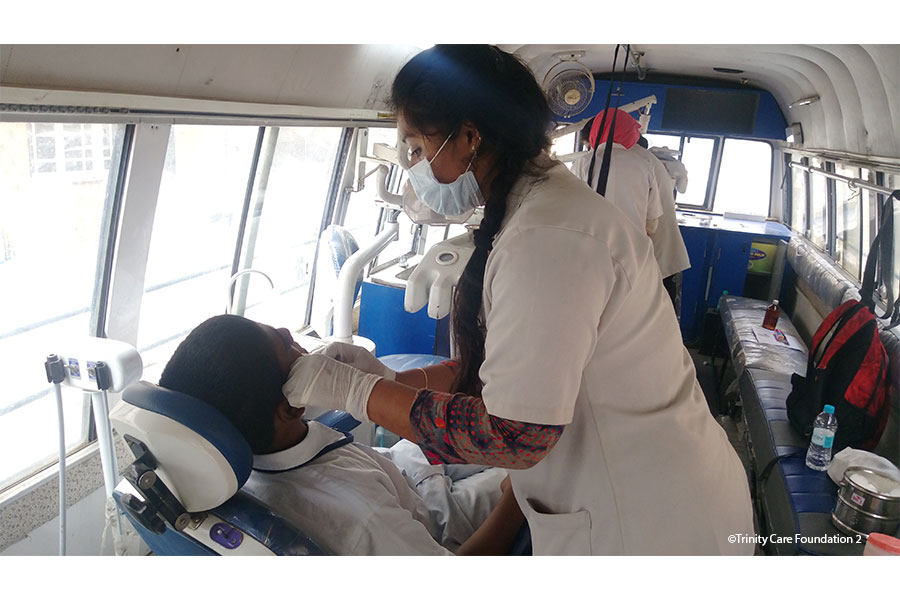Mental Health and the COVID 19 Pandemic–Exploring the Void
Mental Health and its significance New Normal
The COVID-19 pandemic has gripped the world, transcending physical, cultural, economic, and religious boundaries. Mental health, an alien subject to those uninitiated or those not having close friends and family members with lived experiences has grabbed the limelight with the persistence of this pandemic. Lockdowns have had far-reaching impacts on the populace in general. While on the one hand, people have come closer to each other, the debilitating effects of lockdowns and the pandemic are stark. The cushion of social security is constantly hardening, jobs are hanging on flimsy tethers, hypochondria suddenly is a recourse of the careful and families that had survived all along with careful compartmentalization of feelings and prejudices are suddenly imploding given the close physical and mental proximity that the members have been forced into.
The World Health Organization and its partners have acknowledged the devastating effects of the pandemic on mental health. A survey by WHO from June to August 2020 across 130 countries reveals significant disruption in the delivery of conventional psychiatric services. There is a strong need to move beyond these approaches and embrace accessible services to reduce the episodes of depression and anxiety, or exacerbations of pre-existing mental health
conditions.
In our path towards adopting holistic models of the delivery of mental health services, it becomes pivotal to examine their evidence base. A range of non-pharmacological techniques and psychotherapeutic services are being offered to individuals in distress, however, a detailed probe into these practices reveals limited evidence behind much of these
interventions and their effectiveness. In the following sections, I will attempt to briefly discuss the evidence from Campbell’s reviews to support evidence-informed mental health interventions.
Stress, Anxiety, and Depression

The pandemic has amplified the stress levels, be it a concern for one’s own health and that of the loved ones, uncertainty related to jobs, opportunities lost or likely to be lost owing to extensive restrictions world over, and the general sense of pervading gloom.
Non-pharmacological techniques like Mindfulness-Based Stress Reduction (MBSR) hold promise in improving health, quality of life, and social functioning. The strength of techniques like MBSR lies in the fact that the activities are designed around everyday situations, involve both mental and physical exercises, and most importantly involve a group thereby facilitating in development of a non-judgemental attitude. A systematic review on MBSR by Campbell Collaboration published in 2017 reports that if 100 people went through MBSR, 21 more people will have a favorable mental health outcome compared to if they had been put on a wait-list or gotten only the usual treatment. A similar approach to stress reduction in the current scenario is likely to yield similar if not better results.
There is also evidence in support of Cognitive Behaviour Therapy to reduce the symptoms of depression.
Violence and Abuse
Confinement has increased the risk of violence and abuse, particularly in the family environment.
Fear of an unknown ailment, challenging work from home environments, the concern of losing jobs, and a sense of foreboding and gloom often brings out the worst in people. Interventions to address violence can be at preventive and promotive levels. A systematic review by Campbell Collaboration on “Advocacy interventions to reduce or eliminate violence and promote the physical and psychosocial well-being of women who experience intimate partner abuse” published in 2016 discusses physical abuse, sexual abuse, and emotional abuse. The negative impacts of abuse include depression and reduced quality of life. The review brings to light that couple sensitization activities and intensive advocacy are proven methods to tackle intimate partner abuse albeit being short-term.
Unresolved trauma and distress among victims of abuse can lead to several negative mental health consequences such as depression, post-traumatic stress disorder, thoughts of self-harm, and even suicide. Campbell carried out a review on the effectiveness of interventions that address the distress associated with sexual assault among victims. The review identifies evidence relating to the use of cognitive processing therapy, stress inculcation therapy and
supportive psychotherapy in reducing symptoms of PTSD in the aftermath of traumatic sexual experiences.
According to UNICEF, children are at heightened risk for abuse and neglect under containment and their basic rights to safety and protection are threatened. Campbell with the support of UNICEF is working towards publishing a map of interventions to reduce violence against children.
Tackling Substance Abuse
Substance and stimulants have always been just one excuse away and in times of COVID-19, there are reasons one too many to the yearners. With no access to rehab facilities due to extensive restrictions and increased psycho

social challenges, people with a history of addiction might often relapse. There is also a risk for initiation of use of harmful substances or increased use of harmful substances among persons who use substances occasionally or socially.
Motivation Enhancement Therapy is one of the most commonly used methods to address craving and relapse management in addiction. Campbell’s systematic review of 59 studies with 13,342 participants shows that Motivational Interviews (MI) are known to reduce the extent of substance abuse compared to no intervention. MI is a client-centered, semi-directive method for enhancing intrinsic motivation to change by exploring and resolving ambivalence.
Another review by Campbell collaboration that holds great significance in the current times examines the effectiveness of early, computerized brief interventions on alcohol and cannabis use by young people who are high or risky consumers of either one or both of these substances. The review summarises findings from 60 studies from 10 countries. It was observed that the interventions significantly reduced alcohol consumption in the short-term as opposed to no intervention being carried out. However, the effect size is small, and there is no significant effect in the long-term.
The Way Ahead
Systematic reviews provide a reliable, comprehensive, and rigorous summary of existing evidence that can be used to inform and stimulate evidence-based mental health interventions. The existential approach,art-based healing, humanistic approach, dialectic approach, strengths perspective, systemic perspective, and community-based approaches are some of the commonly used models to address mental health concerns and promote well being. It is imperative to garner robust evidence in these areas as well to prevent them from being pushed to the back burner.
Write to us to know more and to get in touch: southasia@campbellcollaboration.org




